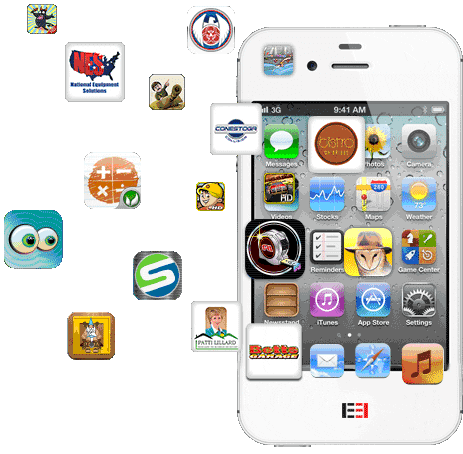 Walk into any small business and you will likely be able to identify an example of industry evolution that has come to the mainstream in only the last decade. In the late 80s and early 90s we began to see computers in the back offices of every business for purposes of bookkeeping and the like. Since the late 90s, those computers were brought to the front desk, check out and hostess station and have since been hooked up to the internet.
Walk into any small business and you will likely be able to identify an example of industry evolution that has come to the mainstream in only the last decade. In the late 80s and early 90s we began to see computers in the back offices of every business for purposes of bookkeeping and the like. Since the late 90s, those computers were brought to the front desk, check out and hostess station and have since been hooked up to the internet.
Nowadays, we can hold these computers in the palms of our hands. With each passing decade, innovations in technology allow businesses to create efficiencies in workflow and communication and most importantly better serve customers. Simply consider what websites, email and mobile phones have done for your industry in just the last 20 years. What is the next 20 years going to bring and how can your business harness the power of increasingly available technology to increase efficiency, promote communication, save time and increase profits?
Right now, for many businesses, the answer is in a mobile app. Android and iPhone apps have become so ubiquitous that folks of all ages and skill levels have become proficient in their use. They are, in short, the new normal. In the same manner in which business owners mulled the hows and whys of a website a decade or two ago, such is the nature of the appearance of the mobile app on the small business landscape. Ultimately, shouldn’t your business be taking advantage of the same technologies that your clients and employees use elsewhere in their daily lives?
The first rule of app development for the small business is determining use. Necessity is the mother of invention after all. It is best to identify needs in your business. Does your office have difficulty with communication between office staff and field staff or warehouse staff? Are there inefficiencies data collection from new clients or communication patterns with existing clients? Are you missing opportunities for increased sales?
A lot of this brainstorming begins with identifying the weakest links in a successful business and determining how technology can aid in overcoming those weaknesses. Once you have identified an opportunity for improvement, look into contracting with a firm who has experience in developing apps for small business. An experienced development firm will help to identify any number of possible solutions based on need and budget.
If it is your first time developing an app for your business, it is always a good idea to involve various staff members who can provide additional feedback on design, function and ease of use. Make sure you are testing the methods and execution of your app’s functionality with the folks who are going to end up having to use it after launch. Sometimes it is difficult for business owners to take off their management hat and put on their employee hat or client hat for these purposes. Try to be as open minded as possible during this time.
Our firm has developed a number of custom mobile apps for clients and each one has served a different need for those businesses and their employees and customers. Invariably, the most challenging piece is managing phase two ideas from our clients before phase one development has even been completed. Generally, any app you develop will see new incarnations and should grow with your business over time. IT is a good idea to set limits on changes during development so that you can get a working beta version successfully launched and then begin the work on next level functionality.
Remember the launch of your first website or the first introduction of accounting software or a new phone system to your business? At the time, time those moments may have seemed overwhelming, but now you cannot imagine how your business would operate without them. It is time to consider how a mobile app could bring innovation to your business.






